![]() Protect Yourself
Protect Yourself
Identity Theft
The Federal Trade Commission has outlined what steps to take when your personal information has been lost or exposed. Their “Identity Theft Tips” document contains details on how to report Identity Theft as well as the steps for a Recovery Plan. More information can be found on the https://identitytheft.gov website.
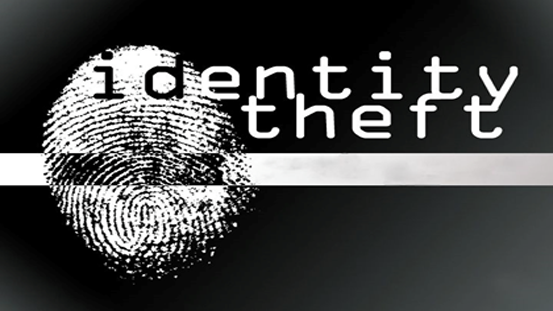
Create your Social Security Account
The Social Security Administration recommends that you create an online account sooner rather than later to prevent someone else from opening an account with your name and supplying false information. Signing up for your Social Security account is a free service which allows you to look at your earnings history and projected retirement amounts. You can create your Social Security account at https://www.ssa.gov/myaccount/. Some credit cards or banks even offer Social Security monitoring for free that alert you if your Social Security number is found on any of thousands of Dark Websites which are known for revealing personal information.
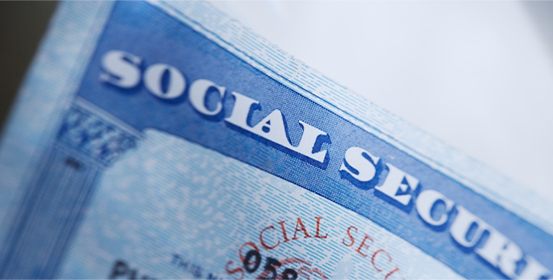
Credit Report Monitoring
There are several services available for purchase which allow you to monitor your credit report for all three credit bureaus and it will alert you anytime a new account is opened or listed on your credit report. This can help safe guard your credit score from fraud. It is also recommended that you annually review your credit report on all three of the credit bureaus, TransUnion, Equifax, and Experian for any issues or informational errors.
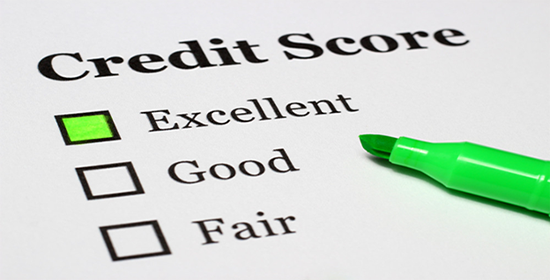
Scams
Be cautious of people who come to your door soliciting a service. They might disguise themselves with uniforms, IDs or even as employees of real companies. Sometimes they are trying to sell you a service or they could also be scamming you for information on things like your home security system or personal information that they could use for Social Engineering.

Beware of Vishing
Vishing are fraudulent phone calls often impersonating legitimate companies or individuals who are trying to get you to reveal personal information such as your credit card number or bank account details. For example, you could get a phone call from someone claiming to be from the IRS asking you to pay back taxes or face jail time. As part of that call, they want you to give them your credit card number so that you can settle your account. But the IRS never conducts business like that over the phone. The IRS always sends written correspondence.
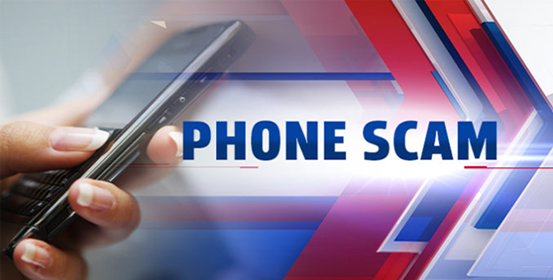
Credit Card Skimmers
Skimmers are devices that are placed over actual credit card readers at places like ATMs or Gas Pumps by criminals who capture your credit card information when you insert your card at legitimate locations.
The best way to protect yourself is to check any credit card reader before you use it. You can do that by just grabbing the card reader and wiggling it. If it comes off in your hand, then immediately report it to the owners of that business.
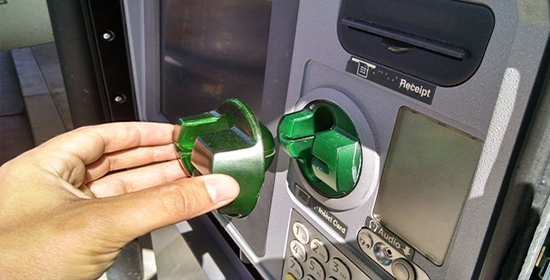 Photo via Washington State Department of Financial Institutions.
Photo via Washington State Department of Financial Institutions.
Bank Account Monitoring
Many bank accounts allow you to set up notification anytime a withdrawal over a certain amount is made from your account. Some credit cards offer similar services. Having notification allows you to react and respond immediately when something fraudulent occurs. Also, it is recommended that you choose to use stronger authentication, where available, such as a one-time PIN number that is texted to your mobile device to verify your account login. Additional information is available at www.lockdownyourlogin.com.
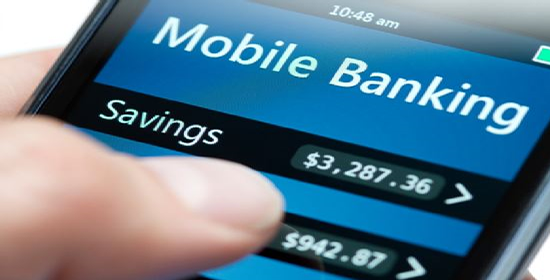
Phishing
Phishing is an attack in which someone is contacted through an email, telephone or text message by someone posing as a legitimate institution or contact to lure individuals into providing sensitive data such as personally identifiable information, banking and credit card details, account information, and passwords. It’s a type of identity theft and is one of the most common cyberattacks. For more information, you can watch our Email Phishing video. And to report a suspicious email, please visit our Email Phishing Incident page.
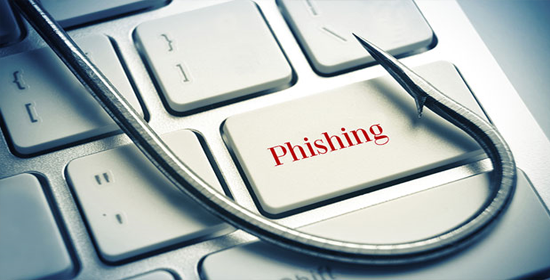
Keep Personal Items Safe
Don’t leave your cell phone, laptop, purse, wallet or other valuables unattended. Don’t leave anything of value in plain sight within your car. Always lock your car and the doors to your home. Not being conscientious of your items, makes them an easy target for theft.

 Cybersecurity
Cybersecurity